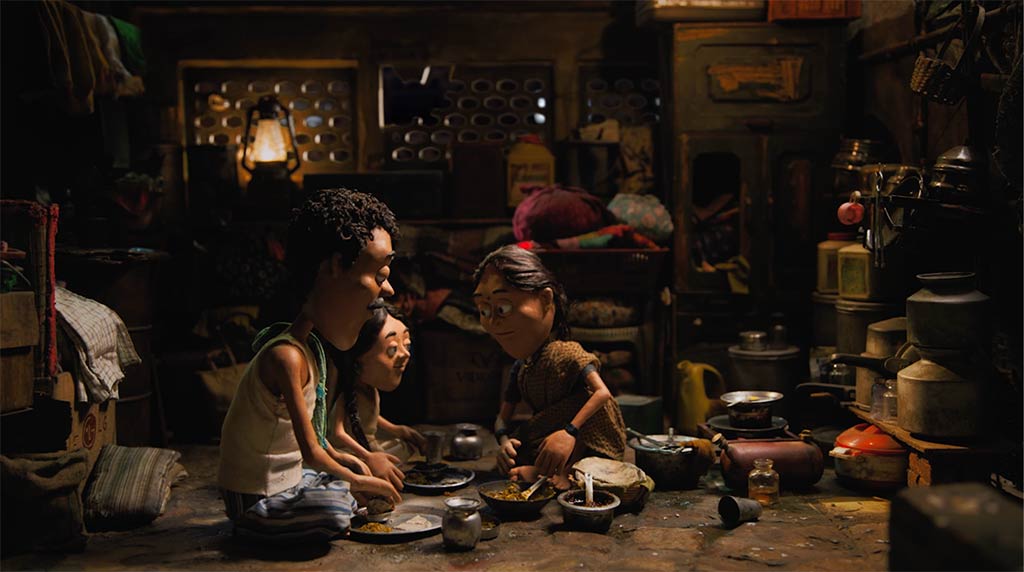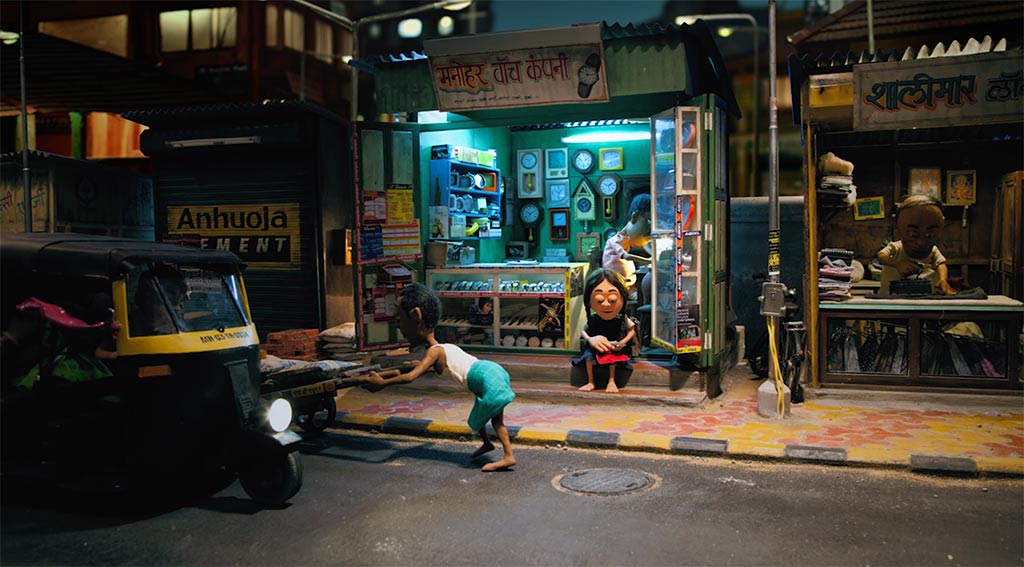Stop and Tell Tales
With a heartrending story, Studio Eeksaurus’ ‘Tokri’ – the award-winning stop-motion short – leaves us with a stark yet warm commentary on life in the big city
Shraddha Nair
Speeding cars, whizzing lights and air filled with unfazed energy. The city of Mumbai, or Bombay as romantics call it, is a subject steeped in its own uniquely myriad culture – an artist’s perfect muse. A city too rebellious to be the country’s capital yet too boisterous to be ignored, Bombay has played host to many fantastical stories, some in fiction and some in real life; with the best being a special concoction of both. Tokri is one such remarkable meld. Inspired by a fleeting incident which most of us brush aside quite happily, founder of the production house Studio Eeksaurus Suresh Eriyat was whisked away by his moral compass and hyperactive imagination into an eight-year-long creative endeavour.

After encountering and dismissing a young girl struggling to sell cane baskets at a traffic light, a common sight on Bombay’s streets, Eriyat began to write a fictional script on the events and circumstances which led to that girl all but begging on the streets of the bustling city. Taking a bold leap into the art of stop-motion animation, Studio Eeksaurus brought to life a timeless narrative which examined a single event in the life of an economically underprivileged family. While certain visual indicators reference an Indian context, the story itself is one of universal relatability. Reinforcing values of the richness of relationships as above that of material poverty, the short film evokes themes of love, family and forgiveness.
While the film does not contain a single conversation, it is abundant with dialogue. Through gestures and facial expressions, Tokri manages to say more with very little. One of the imperative elements in the project is the incredible sound design which guides the viewer through the emotional waves within the story. Using tempo, volume and tune, the soundtrack of the film is a leading light which seems to tie the entire experience together. The music is without lyrics and purely instrumental, taking away no attention from the visual experience and instead, elevating it; while simultaneously recalling the warmth of old Bollywood films.

What is singularly impressive in the film is the impeccable attention to detail. Claymation is a tedious undertaking, and even more so when there are many elements in the frame to consider. Studio Eeksaurus recreated, as though handpicked and transposed from the urban poverty settlements of Bombay, a typical home with all the predictable elements – from worn down pots and pans, to a Kantha craft blanket – right down to the kerosene lamp. The varied textures in both material and sound create a realistic rendering of the often-overlooked underbelly of beloved Bombay.

While the film has a charmingly grounded nature about it, as a viewer I was left wanting to see some more experimentation with the medium itself; as Claymation allows one to push past life-like imagery into more imaginative and sensory-sensitive visual experiences. That being said, it was possibly the simplicity of the film which made it such an endearing one. It is of little wonder that the fifteen-minute film, since its release in 2018, has accrued critical acclaim in 106 film festivals held across the globe and has been awarded with thirty accolades.

